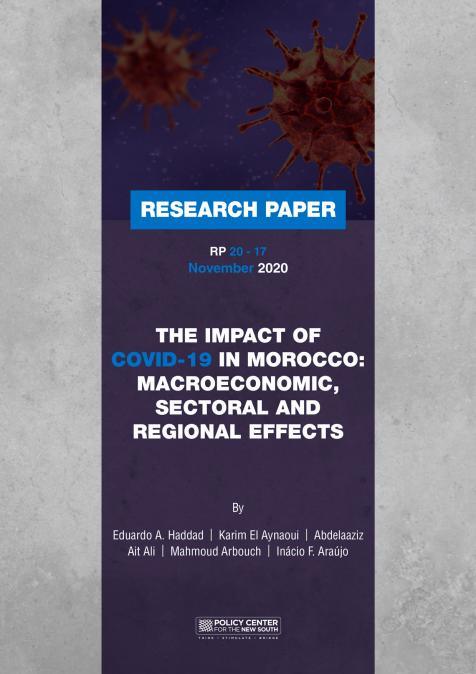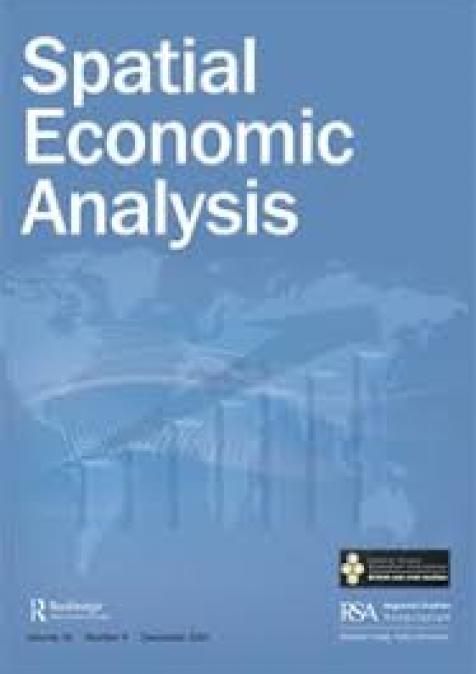Publications /
Opinion
We are all deeply saddened by the threat the COVID-19 disease poses to our health and way of life. But I am confident the coordinated actions of world leaders will minimize the hardships on the less fortunate and the elderly, and restore our economies. This event has a finite end.
As Albert Einstein once said: “in the middle of difficulty lies opportunity.” Those words have never been more relevant. Can the COVID-19 outbreak be such an opportunity? Without diminishing the severity of the damage the pandemic is causing, we can still hope for a positive outcome. There is a lot each of us can do to emerge better as individuals and as a society. COVID-19 is an opportunity to reclaim our humanity.
In the midst of the crisis, we should aim for the deepest possible transformation. To do this we will have to shift some of our focus away from the external pursuits that occupied our busy lives to spend more time dwelling inside ourselves.
Our lives were fast-paced, competitive, full of anxiety and unsatisfied wants. Although this way of life gave us enormous material benefits and has lifted billions out of poverty, it also crowded out something essential to our humanity, and that is pure awareness: the awareness of the interconnectedness of all things, that we are part of something bigger, that our achievements arise from cooperation, not antagonism. It’s the awareness that real beauty lies in the diversity of every aspect of creation, and that material objects are not what bring us real fulfillment or wellbeing.
This crisis has shocked us into waking up to our profound interconnectedness, albeit in a very cruel way. How did we lose sight of this fundamental reality? Perhaps it was a simple failure to heed the age-old wisdom of sages such as John Stuart Mill, Bertrand Russell, and John Maynard Keynes, who advised us a century ago to “value ends above means and prefer the good to the useful.” When we value ends above means, we prioritize what ultimately matters, which is the birthright of every human being to live a meaningful life, free of pain and suffering.
Recently, I spent five years at Harvard University studying the accumulated wisdom of humanity, across eras, places, and disciplines. It reinforced what I have learnt from personal experience and reflection, and led me to the conviction that there are three things that matter most in life: love, learning, and play. As Einstein also said, “out of clutter, find simplicity.”
It is easy to become distracted by the vicissitudes of life. Our obligations, desires, and fears constitute a kind of mental clutter that obscures love, learning, and play. If we were to clear this clutter, we could bring love, learning, and play—what I call the LLP mindset—more fully into our lives and into the world at large, replacing discord with harmony.
Now that everyone the world over has been forced to slow down, no one needs to fear losing their competitive edge. We are all in this together. It is, therefore, a golden opportunity to reflect on our lives and focus on what matters. COVID-19 may destroy a big part of our way of life, but on reflection I dare say it will give us the chance to discover new, meaningful ways to engage in LLP.
In tech terms, the LLP mindset is an app that is compatible with all operating systems: all religions, beliefs, self-help movements, and science. LLP is nothing new, but with all life’s complications we’ve lost sight of how it can bring us real fulfillment. This crisis is an opportunity to update the app; not to invent a new technology, but to harness an existing one. Even though the circumstances are dire, we can use this unique moment as an opportunity to reconnect and engage in LLP.
I have always been mesmerized watching small children play. They are completely in the moment, without caring who is watching. They never hesitate to show their emotions or their affection, letting them flow freely, whether it is a loud belly laugh or a joyful hug. These bundles of curiosity are like sponges, soaking up everything presented to them. Like flowers that need air, water, and nutrients in the right proportions to blossom, children need love, learning, and play.
Once a child is fed, dry, and rested, he or she exists in a state of total wellbeing, doing little more than loving, learning, and playing. I believe that like children, we can increase our wellbeing, flourish even, when we bring LLP to everything we do. During this COVID-19 crisis, let us become more childlike. Recall beautiful moments from your childhood and take inspiration from them: the love we experienced with friends and family, the constant asking of why, with which we exhausted our parents to satisfy insatiable curiosity, the awe and wonder with which we tried to understand the world, and the joys of simple play.
Each of us will find different ways of bringing LLP into our lives based on our circumstances, but the results will be the same—a greater sense of fulfillment and wellbeing. Here are just a few illustrations of love, learning, and play.
Love
We are isolating ourselves not only to keep ourselves healthy, but to keep others healthy too, including total strangers. We do it because we realize that keeping others healthy is how we keep ourselves healthy. It is the same with love. When we love others, we are really loving ourselves in the truest sense. If we act as if the person across the table from us is us, when we treat people as we want to be treated, toxic behaviors and emotions don’t stand a chance. Dislike, envy, prejudice, and selfishness dissolve. Empathy, compassion, and altruism flow.
As New York Governor Andrew Cuomo remarked recently, we can bring love to social interactions by using these three-word sentences often: I miss you; I love you.
Learn
The most important thing we can learn in this crisis is the difference between means and ends, and how we all became victim of means-ends inversion: our means became our ends without us being conscious of it.
In these difficult times, treat obstacles, challenges, and failures as friends, rather than foes. They’re some of our greatest teachers. Every situation and social interaction, especially those that seem difficult, offers an opportunity to learn and grow. And when you firmly focus on the learning rather than the difficulty, you end up with more peace and fewer problems.
As we get older, we’re often less inclined to learn new things—from people, situations,
or in the classroom. That’s too bad because studies tell us that the more you exercise your brain, the slower it ages. And not only does learning improve the physiology of your brain, it brings wonder, beauty, excitement, and joy into your life. We all need more of that, and now we have found the time to put it all into action as we cope with the COVID threat.
There is so much to learn on the web. Make it a group exercise. Find something everyone you’re confined with is interested in and explore it, enjoying the pleasure of discovery.
As comedian Trevor Noah quipped recently: “Spend more time looking at your phone, being on social media, and watching TV. You’ll never—there’s no other time in history when anyone would give you that advice.” There are many enjoyable ways to learn.
Play
Give yourself permission to spend time engaged in activities you enjoy. Play music or tennis, spend time with friends, cook, bake, or make art. Do it the way children play—freely and unselfconsciously, focusing on the process and not the end results. Simply put, embrace the joy of doing something for its own sake. In other words, go with the flow—a term coined by the psychologist Mihaly Csikszentmihalyi. He described it as the state in which people are so involved in an activity that nothing else seems to matter; the experience itself is so enjoyable that people will do it for the sheer sake of doing it.
Laugh a lot, read, and tell jokes, do crosswords, Sudoku, or play card games. And of course, play Antakshari!
One of the great examples of creative play we have seen recently has been the phenomenon in several European and Asian countries of balcony socialization. On social media, people are capturing videos of themselves and/or others singing, dancing, exercising, and more in unison from their balconies. This phenomenon is an inspiring display of human LLP in the midst of a global crisis.
For more about LLP, visit www.uef.org to read the article on The Triple Helix of Human Flourishing.
The opinions expressed in this article belong to the author.
Akhil Gupta is the founder director of Universal Enlightenment Forum. He spent five years at Harvard University as a Senior fellow/Guest. He was the chairman of Blackstone India from 2005 to 2014. He is on the Advisory Board of Stanford Business School, the Leadership Council of Harvard Divinity School, and the Advisory Board of Harvard University’s Human Flourishing Initiative. He is at work on a book on LLP.







